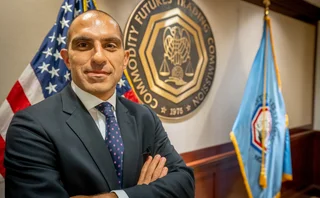
Madoff feeders' due diligence attacked as lawsuits mount
Investors that lost billions of dollars to Bernard Madoff have filed several class-action lawsuits claiming massive due diligence failures by fund managers who placed money into the alleged $50 billion Ponzi scheme, even though scant detail has emerged on how the fraud worked.
On February 20, a group of investors filed a class-action suit against New York-based Tremont Group Holdings, a feeder fund that had $3.3 billion of client assets invested with Bernard Madoff Investment Securities (BMIS) at the time the fraud was brought to light on December 11, 2008.
The suit alleges that, although Tremont "promised investors it would provide careful due diligence and portfolio management, it did nothing of the kind. Contrary to its representations to investors, Tremont conducted no due diligence or due diligence that was negligent and/or reckless".
Tremont ranks as the second-largest Madoff victim, after New York hedge fund Fairfield Greenwich, which has confirmed an exposure of $6.9 billion to BMIS and was one of the first funds to be served papers by investors over lax due diligence.
Similar writs have been filed at the Southern District Court of Florida, where investors of a sub-fund of Geneva-based Optimal Investment Services are suing the investment adviser, a subsidiary of Spanish giant Banco Santander, over $3.1 billion in client funds swallowed up by Madoff.
Optimal had said its US broker-dealer - the identity of which was kept from investors but was later revealed to be Madoff - was only "responsible for the execution of the fund's trading strategy". Optimal took all investment decisions itself, it said.
The suit alleges Optimal published materials that "contained false and misleading information about the manner in which [clients'] assets were being invested". Despite being paid almost €44 million annually in management fees and stressing its "intensive due diligence" processes, Optimal "failed to conduct reasonable and adequate due diligence" on Madoff, the suit claims.
Santander declined to comment on the details of Optimal's due diligence processes, but one of the attorneys representing plaintiffs in the Florida class action stated the Spanish banking group looks to be at fault, regardless of whether it investigated Madoff or not.
"Santander is going to have a very hard time defending its due diligence. If it did really conduct thorough due diligence, went into Madoff's offices and saw how much or how little trading he was doing, then that calls into question how much it knew. To the extent it didn't show any due diligence, then that in itself is huge," he commented.
The US Congress heard damning testimony from fraud examiner Harry Markopolos on February 3, when he recalled his repeated efforts to alert the Securities and Exchange Commission (SEC) to the Ponzi scheme and claimed he completed the calculations in just four hours that proved Madoff's purported 30-year split-strike conversion to be a mathematical impossibility.
Markopolos roundly attacked the "financial illiteracy" rife within the SEC and lambasted it for failing to recruit examiners with expertise in derivatives and quantitative finance, estimating that only one person out of the regulator's 3,500 staff understood how a split-strike conversion works.
After the conclusion of Markopolos' testimony, representatives from the SEC, brought before the committee to testify how the Ponzi scheme had escaped their detection, enraged Congressmen by refusing to answer questions pertaining to the BMIS investigation, citing concerns such comments would render certain information inadmissible at any future criminal proceedings.
On February 9, Madoff reached a settlement with the SEC over the civil suit the regulator filed against him, establishing the facts of the complaint had been agreed upon by both parties and were no longer contestable by Madoff. Under the agreement, Madoff is permanently restrained from violating provisions of federal securities laws, his assets remain frozen and judgement on fines or other civil penalty is postponed to a later date.
The agreement came four days after BMIS trustee Irving Picard announced he had recovered a total of $946.4 million in cash and securities from BMIS. Later in the month, Picard revealed he had found no evidence of any securities traded on behalf of investors for "perhaps as much as 13 years", and characterised the BMIS as simply a "cash in and cash out" operation.
See also: SEC incompetence and secrecy over Madoff enrages Congress
Quantitative tests pointed to Madoff fraud, says Riskdata
Congress questions SEC competence as Madoff investigation begins
Madoff fraud puts focus on fund due diligence
Only users who have a paid subscription or are part of a corporate subscription are able to print or copy content.
To access these options, along with all other subscription benefits, please contact info@risk.net or view our subscription options here: http://subscriptions.risk.net/subscribe
You are currently unable to print this content. Please contact info@risk.net to find out more.
You are currently unable to copy this content. Please contact info@risk.net to find out more.
Copyright Infopro Digital Limited. All rights reserved.
You may share this content using our article tools. Printing this content is for the sole use of the Authorised User (named subscriber), as outlined in our terms and conditions - https://www.infopro-insight.com/terms-conditions/insight-subscriptions/
If you would like to purchase additional rights please email info@risk.net
Copyright Infopro Digital Limited. All rights reserved.
You may share this content using our article tools. Copying this content is for the sole use of the Authorised User (named subscriber), as outlined in our terms and conditions - https://www.infopro-insight.com/terms-conditions/insight-subscriptions/
If you would like to purchase additional rights please email info@risk.net
More on Regulation
Revealed: the three EU banks applying for IMA approval
BNP Paribas, Deutsche Bank and Intesa Sanpaolo ask ECB to use internal models for FRTB
FCA presses UK non-banks to put their affairs in order
Greater scrutiny of wind-down plans by regulator could alter capital and liquidity requirements
Industry calls for major rethink of Basel III rules
Isda AGM: Divergence on implementation suggests rules could be flawed, bankers say
Saudi Arabia poised to become clean netting jurisdiction
Isda AGM: Netting regulation awaiting final approvals from regulators
Japanese megabanks shun internal models as FRTB bites
Isda AGM: All in-scope banks opt for standardised approach to market risk; Nomura eyes IMA in 2025
CFTC chair backs easing of G-Sib surcharge in Basel endgame
Isda AGM: Fed’s proposed surcharge changes could hike client clearing cost by 80%
UK investment firms feeling the heat on prudential rules
Signs firms are falling behind FCA’s expectations on wind-down and liquidity risk management
The American way: a stress-test substitute for Basel’s IRRBB?
Bankers divided over new CCAR scenario designed to bridge supervisory gap exposed by SVB failure







